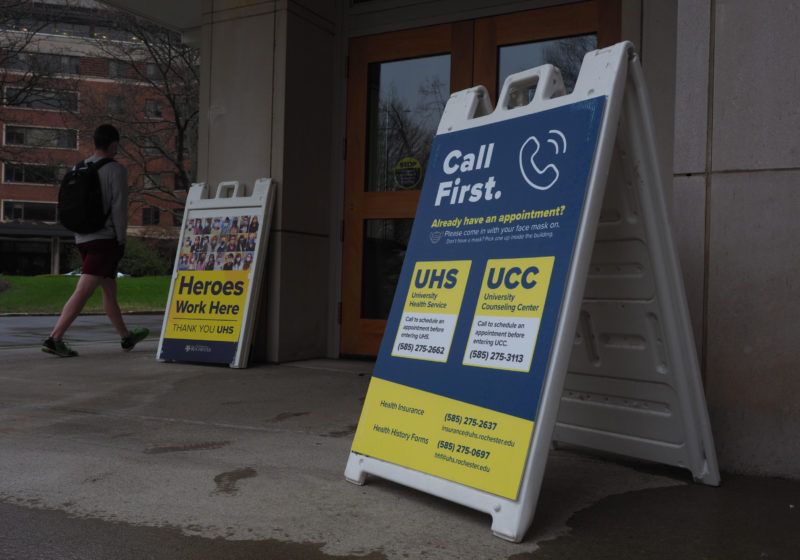As the semester comes to a close, the pressure and stresses of the past year have taken their toll on the UR community. In addition to challenging semesters of hybrid teaching, which has been a challenging adjustment for some students, the UR community has also been impacted by the COVID-19 pandemic and systemic racism. The University Counseling Center understands the weight of the past year.
“We’ve seen burnout impact students in many ways,” staff psychologist and UCC Outreach Coordinator Dr. Michael Siembor said. “Students reporting feeling physically and emotionally exhausted, feeling helpless, feeling overwhelmed, feeling isolated, feeling powerless, feeling angry, feeling the demands on them outweigh their resources, feeling like they’re hitting a wall, that they’re in survival mode, some perhaps over-caretaking for others while their care for themselves slides.”
Dr. Siembor discussed how burnout might not capture the entirety of the UR community’s experience during the past year. “The other thing I’d say is that the word burnout is often used in an attempt to capture peoples’ experiences during stressful times, but we are in the middle of two pandemics, COVID-19 and systemic racism.” Dr. Siembor said. “Trauma might better capture a person’s individual and our collective experiences during this time when so much is changing, out of our control, and still uncertain.”
In addition to scheduled individual and group therapy, UCC offers students drop-in group therapy sessions. Students do not need to have an appointment to join the drop-in session, and can join through Zoom. Drop-in groups range from Managing Burnout and Stress, Support for AAPI, Support for International Students, Grief and Loss, and more. Students can access strategies and resources to improve their mental health on the UCC and UHS website. Students can also access UCC’s 24/7 crisis services hotline for urgent mental health emergencies.
Dr.Siembor described some of the strategies and benefits of UCC’s therapy methods. “Generally speaking, talking about problems can help folks feel more in control and better able to manage those problems, in addition to specific other strategies we might use at the counseling center that may focus on improving self-regulation, improving self-compassion, increasing mindfulness and reflection, trying new behavior or cognitive strategies, self-care, among others.”
UCC has increased their programs this year, with the inclusion of drop-in groups, and are looking for feedback on how they can improve. “We’re constantly seeking feedback, both from students who visit UCC and the broader community, and anyone can comment on our UCC main webpage,” Dr. Siembor said.
Overall, Dr. Siembor pointed to the importance of self-compassion and empathy during these times. “I’d say being kind, patient, and listening, trying to understand where others are coming from is important since so many folks are holding a lot of things right now – COVID, racial trauma, some students can’t go home right now.” Dr.Siembor stated. “Everyone – be it students, faculty, staff, or other community members – everyone is struggling to handle the pressures and stresses this year is bringing to them in their own unique and complicated ways. What I’d recommend to the UR community is what I’d recommend to anyone: when in doubt, focus on self-compassion and empathy for others during this time.”
For more information, visit UCC’s website to make an appointment or view their drop-in groups. If you are experiencing a mental health emergency, call the UCC crisis line at 585-275-3113.






